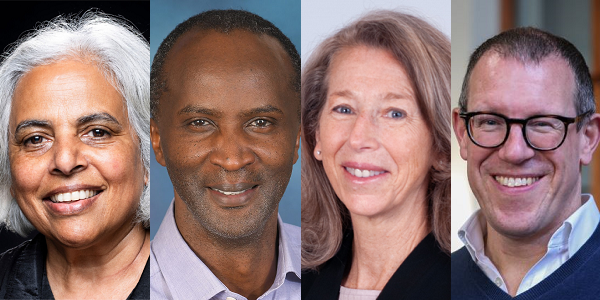Department News
Researchers receive major grant to study impact of HIV/ART exposure on child neurodevelopment
An international research team with Global WACh and partners in the U.S., Kenya, Zimbabwe, and Botswana received a five-year long $36 million dollar grant from the National Institute of Health to better understand how HIV or antiretroviral (ART) exposure in utero influences child health outcomes, including neurodevelopment.
Dr. Keshet Ronen receives award to assess inclusion in digital community health services in Kenya
Congratulations to Dr. Keshet Ronen, Assistant Professor in Global Health, for receiving funding for “Empowering Women through Digital Connectivity: Advancing Community Health in Kenya” that leverages the ongoing CHV-NEO (Community-based digital communication to support neonatal health) trial activities.
Global WACh Co-Director Anjuli Wagner nominated for the 2025 UW Minority Faculty Mentoring Award
Congratulations to Dr. Anjuli Wagner, Associate Professor in the Department of Global Health and Global WACh Co-Director, for being nominated for the UW School of Medicine’s Committee on Minority Faculty Advancement (CMFA) Minority Faculty Mentoring Award.
Alumni at the Forefront of Global Health Justice
What do you do when you’re outraged by a forgotten crisis? After reading about the ongoing humanitarian catastrophe in the Central African Republic- a country with one of the highest mortality rates in the world yet little global attention- Department of Global Health alumnae Alina Metje (‘23) and Amaya Gatling (‘25) wrote an article for the Department’s Global Health Justice website calling for renewed visibility and accountability by the international community.
In the Field: Brooke Erickson
Editor's Note: Travel fellows apply for funding that supports travel costs and allows them to take advantage of opportunities abroad that meet degree requirements and deepen their understanding of what global health work looks like around the world. Funds are generously given by private donors who value experiential learning within global health.
Brooke Erickson, a second-year global health master’s student, received funding from the Thomas Francis Jr. Endowed Fellowship Fund to support her practicum work in Ethiopia.
In the Media
Kitsap health board taps Duber as permanent health officer
Dr. Herbie Duber, a global health professor who became health officer for the Kitsap Public Health District on an interim basis in August, will continue to serve in the role going forward.
Duber appointed as KPHD’s new permanent health officer
The Kitsap Public Health District Board appointed Dr. Herbie Duber, a professor in the Departments of Emergency Medicine, Global Health, and Health Metric Sciences, as the agency’s permanent health officer at its Feb. 3 meeting.
Trump's exit from global climate treaty leaves U.S. without a voice in negotiations
In an executive order, Trump put an end to more than three decades of U.S. support for the United Nations Framework Convention on Climate Change, the world's long-standing climate treaty. Kristie Ebi, professor of global health and of environmental and occupational health sciences at the UW, is quoted.
Aluminum is crucial to vaccines - and safe. Why are CDC advisers debating it?
RFK Jr’s vaccine advisory panel will be discussing the inclusion of adjuvants in childhood vaccinations today. Here’s what’s at stake. Rhea Coler, an affiliate professor of global health at the UW, is quoted.
The State of Healthcare in the U.S.
Dr. Stephen Bezruchka, associate teaching professor emeritus of global health and of health services at the UW, talks about the state of health care in the United States in this KCSB-FM snippet.






